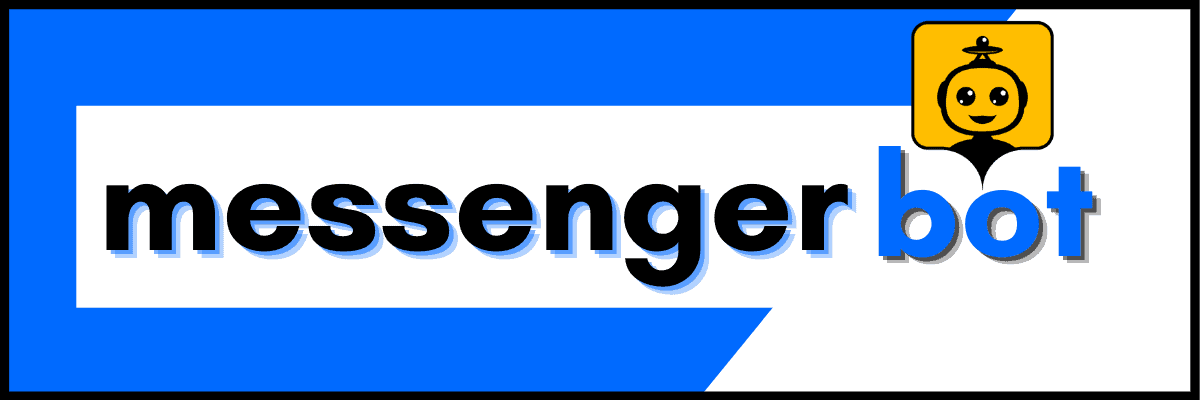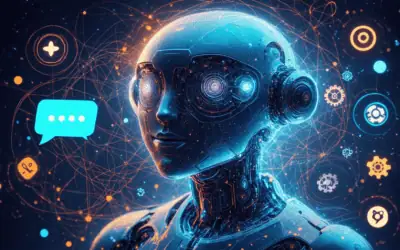In the rapidly evolving landscape of healthcare, the application of chatbots is emerging as a transformative force, revolutionizing patient care and streamlining medical processes. These AI-powered digital assistants are reshaping the way healthcare providers interact with patients, manage information, and deliver services. From enhancing patient engagement to optimizing administrative tasks, chatbots in healthcare are proving to be invaluable tools in the industry’s digital transformation. This article delves into the multifaceted world of medical chatbots, exploring their functionality, current trends, and the diverse types deployed in healthcare settings. We’ll examine how these AI healthcare chatbots compare to consumer AI assistants, uncover their operational mechanics, and showcase real-world applications that are shaping the future of medicine. Join us as we navigate the exciting intersection of artificial intelligence and healthcare, revealing how chatbot technology is poised to revolutionize the medical field and improve patient outcomes.
Understanding the Application of Chatbots in Healthcare
In the rapidly evolving landscape of healthcare technology, chatbots have emerged as powerful tools for enhancing patient care and streamlining medical processes. As an AI-driven platform specializing in automated communication, we at Messenger Bot recognize the transformative potential of chatbots in the healthcare sector. These intelligent systems are revolutionizing how patients interact with healthcare providers, access information, and manage their well-being.
What is the application of chatbot?
Chatbots are AI-powered conversational interfaces designed to simulate human-like interactions across various digital platforms. In healthcare, their applications are diverse and impactful:
- 24/7 Patient Support: Providing round-the-clock assistance for general inquiries and symptom assessment.
- Appointment Scheduling: Streamlining the booking process and reducing administrative burden.
- Medication Management: Offering reminders and information about prescriptions.
- Health Monitoring: Collecting and analyzing patient data for proactive care.
- Mental Health Support: Delivering initial screenings and coping strategies.
- Medical Education: Disseminating health information and answering FAQs.
The versatility of chatbot technology in healthcare is evident in its ability to handle multiple tasks simultaneously, improving efficiency and patient satisfaction. According to recent studies, healthcare chatbots are projected to save the industry billions annually by 2025, underscoring their growing importance in modern healthcare delivery.
Chatbot medical: Transforming patient interactions
The integration of chatbots in medical settings is revolutionizing patient interactions, offering a more accessible and efficient healthcare experience. These AI-powered assistants are transforming various aspects of patient care:
- Triage and Initial Assessment: Chatbots can quickly evaluate symptoms and direct patients to appropriate care levels.
- Personalized Health Advice: By analyzing patient data, chatbots provide tailored health recommendations.
- Chronic Disease Management: Regular check-ins and monitoring help patients manage long-term conditions more effectively.
- Mental Health Support: Offering immediate, judgment-free support for those experiencing mental health challenges.
- Appointment Follow-ups: Automating post-visit care instructions and medication adherence checks.
The use of chatbots in healthcare is not just about automation; it’s about enhancing the human touch in medicine. By handling routine tasks, chatbots free up healthcare professionals to focus on complex cases and personalized care. This synergy between AI and human expertise is paving the way for a more responsive and patient-centered healthcare system.
As we continue to develop our AI chatbot capabilities at Messenger Bot, we’re excited about the potential to further enhance these medical applications. The future of healthcare lies in the seamless integration of AI-driven solutions like chatbots, working alongside healthcare professionals to deliver superior patient care and outcomes.

Exploring Chatbot Functionality in Medical Settings
At Messenger Bot, we’ve observed the transformative impact of chatbots in healthcare, revolutionizing patient care and operational efficiency. Our AI-powered solutions are at the forefront of this digital health revolution, offering seamless integration of chatbot technology in healthcare environments.
What are chatbots mainly used for?
Chatbots have become indispensable tools across various industries, with healthcare being a prime beneficiary. Their primary applications include:
- Customer Service: Providing 24/7 support for patient inquiries and healthcare information.
- Appointment Scheduling: Streamlining the booking process for medical consultations and tests.
- Lead Generation: Engaging potential patients and collecting essential information for healthcare providers.
- Information Retrieval: Quickly accessing and delivering relevant medical information to patients and staff.
- Healthcare Triage: Conducting preliminary symptom assessments and guiding patients to appropriate care.
- Medication Management: Offering reminders and information about prescriptions to improve adherence.
- Mental Health Support: Providing initial screenings and coping strategies for mental health concerns.
- Survey and Feedback Collection: Gathering patient feedback to improve healthcare services.
The application of chatbots in real world healthcare scenarios has shown significant benefits, including reduced wait times, improved patient engagement, and enhanced operational efficiency. For instance, Ada Health‘s symptom assessment chatbot has helped millions of users globally, while Babylon Health‘s AI consultation service has revolutionized telemedicine.
Use of chatbots in healthcare: Streamlining processes
The integration of chatbots in healthcare has led to remarkable improvements in various processes:
- Patient Intake: Automating the collection of patient information before appointments, reducing administrative burden.
- Triage and Routing: Efficiently directing patients to appropriate care based on their symptoms and urgency.
- Follow-up Care: Providing post-visit instructions, medication reminders, and monitoring patient recovery.
- Health Education: Disseminating accurate health information and answering common medical queries.
- Appointment Management: Reducing no-shows through automated reminders and easy rescheduling options.
- Insurance and Billing Queries: Assisting patients with insurance-related questions and billing processes.
Our AI chatbot for healthcare at Messenger Bot is designed to seamlessly integrate with existing healthcare systems, enhancing both patient experience and operational efficiency. By automating routine tasks, healthcare providers can focus more on delivering personalized care.
The use of chatbots in healthcare is not just about automation; it’s about creating a more responsive and patient-centered healthcare ecosystem. As we continue to innovate, we’re excited about the potential of AI to further transform healthcare delivery, making it more accessible, efficient, and personalized for patients worldwide.
Current Trends in Healthcare Chatbot Applications
At Messenger Bot, we’re at the forefront of healthcare innovation, leveraging cutting-edge AI technology to revolutionize patient care. Our AI chatbot for healthcare is designed to meet the evolving needs of both patients and healthcare providers in this rapidly changing landscape.
What are chatbots used for today?
Chatbots have become integral to modern healthcare, offering a wide range of applications that enhance patient care and streamline operations. Here are some key uses of chatbots in healthcare today:
- Customer Service: Providing 24/7 support for patient inquiries and healthcare information.
- Appointment Scheduling: Streamlining the booking process for medical consultations and tests.
- Healthcare Triage: Conducting preliminary symptom assessments and guiding patients to appropriate care.
- Medication Management: Offering reminders and information about prescriptions to improve adherence.
- Mental Health Support: Providing initial screenings and coping strategies for mental health concerns.
- Patient Education: Disseminating accurate health information and answering common medical queries.
- Follow-up Care: Providing post-visit instructions and monitoring patient recovery.
- Insurance and Billing Queries: Assisting patients with insurance-related questions and billing processes.
The application of chatbots in real world healthcare scenarios has shown significant benefits. For instance, Babylon Health‘s AI consultation service has revolutionized telemedicine, while our own chatbot solutions at Messenger Bot have helped numerous healthcare providers enhance their patient engagement and operational efficiency.
AI chatbot for healthcare: Innovative solutions
As we continue to innovate in the field of chatbot technology in healthcare, we’re seeing exciting developments that are transforming patient care:
- Personalized Health Coaching: AI-powered chatbots offering tailored advice on diet, exercise, and lifestyle changes based on individual health data.
- Predictive Analytics: Utilizing machine learning algorithms to identify potential health risks and suggest preventive measures.
- Virtual Nursing Assistants: Providing round-the-clock support to patients, answering questions, and monitoring vital signs remotely.
- Multilingual Support: Breaking language barriers in healthcare with chatbots capable of communicating in multiple languages, ensuring inclusive care for diverse populations.
- Integration with Wearables: Syncing with health tracking devices to provide real-time health insights and personalized recommendations.
- Voice-Activated Assistance: Enabling hands-free interaction for patients with mobility issues or during medical procedures.
At Messenger Bot, we’re committed to developing innovative AI healthcare chatbot solutions that address these emerging trends. Our advanced natural language processing capabilities ensure that our chatbots can understand and respond to complex medical queries with accuracy and empathy.
The use of chatbots in healthcare is not just about automation; it’s about creating a more responsive, efficient, and patient-centered healthcare ecosystem. As we continue to push the boundaries of what’s possible with AI in healthcare, we’re excited about the potential to improve patient outcomes, reduce healthcare costs, and make quality care more accessible to all.
Diverse Types of Chatbots in Medical Environments
At Messenger Bot, we’re constantly innovating to provide cutting-edge chatbot technology in healthcare. Our solutions are designed to cater to the diverse needs of medical environments, enhancing patient care and streamlining healthcare operations.
What are the four types of chatbots?
In the healthcare industry, we’ve identified four primary types of chatbots, each serving unique purposes:
- Rule-based Chatbots: These operate on predefined rules and decision trees, making them ideal for handling routine inquiries and simple task automation in healthcare settings. For instance, they excel at booking appointments or providing basic health information.
- AI-powered Chatbots: Leveraging natural language processing (NLP) and machine learning, these sophisticated bots can understand context and learn from interactions. They’re particularly effective for complex medical queries and personalized health advice.
- Hybrid Chatbots: Combining rule-based and AI-powered elements, hybrid chatbots offer a balance of reliability and adaptability. They’re versatile enough to handle both structured healthcare processes and more nuanced patient interactions.
- Voice-enabled Chatbots: Integrating speech recognition technology, these chatbots are crucial for accessibility in healthcare, allowing patients to interact via voice commands. They’re particularly useful for elderly care and hands-free medical assistance.
At Messenger Bot, we specialize in developing AI-powered and hybrid chatbots that can revolutionize healthcare communication. Our AI chatbot for healthcare solutions are designed to understand complex medical terminology and provide accurate, context-aware responses.
Chatbot technology in healthcare: Tailored approaches
The application of chatbots in healthcare requires tailored approaches to meet specific medical needs:
- Symptom Checkers: Our AI-powered chatbots can conduct preliminary symptom assessments, guiding patients to appropriate care or providing self-care advice for minor issues.
- Medication Management: We’ve developed rule-based chatbots that send medication reminders and provide information about prescriptions, improving patient adherence.
- Mental Health Support: Our sophisticated AI chatbots offer initial mental health screenings and provide coping strategies, serving as a first line of support for patients.
- Appointment Scheduling: Hybrid chatbots streamline the booking process, handling complex scheduling requirements while providing a user-friendly interface.
- Patient Education: AI-powered chatbots deliver personalized health information, answering patient queries and promoting health literacy.
The use of chatbots in healthcare is transforming patient care. For instance, Ada Health‘s symptom assessment chatbot has gained recognition for its accuracy in initial diagnoses. Similarly, our chatbot solutions at Messenger Bot have helped numerous healthcare providers enhance patient engagement and streamline their operations.
As we continue to innovate, we’re exploring advanced applications like integrating chatbots with electronic health records for more personalized care and developing multilingual capabilities to break language barriers in healthcare communication. The future of chatbots in healthcare industry is bright, and we’re excited to be at the forefront of this revolution.

Comparing Healthcare Chatbots to Consumer AI Assistants
At Messenger Bot, we’re constantly innovating to stay at the forefront of AI technology. While consumer AI assistants like Alexa have revolutionized home automation and daily tasks, our focus is on developing specialized AI chatbots for healthcare that address the unique needs of the medical industry.
Is Alexa a chat bot?
Alexa, developed by Amazon, is not primarily a chatbot but a sophisticated virtual assistant. While it shares some similarities with chatbots, Alexa’s capabilities extend far beyond simple conversational interactions. It utilizes advanced natural language processing (NLP) and artificial intelligence to perform a wide range of tasks, from controlling smart home devices to providing weather updates and answering general queries.
In contrast, our AI healthcare chatbots are specifically designed for medical applications. They focus on tasks such as symptom assessment, appointment scheduling, and providing health-related information, all while adhering to strict medical privacy standards.
AI healthcare chatbot: Specialized vs. general-purpose systems
The key difference between healthcare chatbots and general-purpose AI assistants lies in their specialization and depth of knowledge in medical contexts:
- Specialized Knowledge: Our healthcare chatbots are trained on vast amounts of medical data, enabling them to understand and respond to complex health-related queries with accuracy.
- Regulatory Compliance: Unlike general AI assistants, our chatbots are designed to comply with healthcare regulations such as HIPAA, ensuring patient data privacy and security.
- Contextual Understanding: Healthcare chatbots can interpret medical jargon and symptoms, providing more relevant and potentially life-saving information compared to general-purpose AI.
- Integration with Healthcare Systems: Our chatbots can integrate with electronic health records and other medical systems, offering a more personalized and comprehensive healthcare experience.
For instance, while Alexa might provide general health tips, our AI healthcare chatbot can offer personalized medication reminders, interpret lab results, or even assist in preliminary diagnoses based on reported symptoms.
The application of chatbots in real world healthcare scenarios is growing rapidly. For example, Babylon Health has successfully implemented AI chatbots for initial health assessments, demonstrating the potential of specialized healthcare AI. At Messenger Bot, we’re committed to pushing these boundaries further, developing chatbots that not only assist patients but also support healthcare professionals in their daily tasks.
As we continue to innovate, we’re exploring advanced applications like integrating natural language understanding for more human-like interactions and developing predictive models for early disease detection. The future of AI in healthcare is bright, and we’re excited to be leading the charge in creating specialized, intelligent chatbot solutions that truly make a difference in patient care.
The Operational Mechanics of Medical Chatbots
At Messenger Bot, we’re constantly innovating to improve the application of chatbots in real world healthcare scenarios. Our AI-powered chatbots are designed to streamline medical processes and enhance patient care through advanced conversational interfaces.
What does chatbot actually do?
In the healthcare sector, our chatbots perform a variety of crucial functions:
- Symptom Assessment: By asking a series of targeted questions, our chatbots can perform initial symptom evaluations, helping to triage patients effectively.
- Appointment Scheduling: Patients can easily book, reschedule, or cancel appointments without the need for human intervention.
- Medication Reminders: Our chatbots send timely notifications to patients about their medication schedules, improving adherence.
- Health Information Provision: They offer reliable, up-to-date health information, answering common medical queries instantly.
- Mental Health Support: Some of our specialized chatbots provide initial mental health assessments and supportive conversations.
For instance, our chatbot technology in healthcare can integrate with electronic health records (EHR) systems, allowing for personalized interactions based on a patient’s medical history. This level of integration enables more accurate and context-aware responses, significantly enhancing the quality of care.
Benefits of chatbots in healthcare: Enhancing efficiency
The implementation of our AI chatbot for healthcare brings numerous advantages to both healthcare providers and patients:
- 24/7 Availability: Our chatbots provide round-the-clock support, ensuring patients can access information or assistance at any time.
- Reduced Wait Times: By handling routine inquiries, chatbots significantly decrease patient wait times for basic information and services.
- Cost-Effectiveness: Automating routine tasks allows healthcare providers to allocate human resources more efficiently, reducing operational costs.
- Improved Patient Engagement: Interactive chatbots encourage patients to be more proactive in managing their health, leading to better outcomes.
- Data Collection and Analysis: Our chatbots gather valuable patient data, which can be analyzed to improve healthcare services and identify trends.
For example, Your.MD, a leading health chatbot platform, has demonstrated how AI can provide personalized health information at scale. At Messenger Bot, we’re taking this concept further by developing chatbots that not only provide information but also integrate seamlessly with healthcare providers’ existing systems for a more comprehensive care approach.
The use of chatbots in healthcare is transforming patient care and operational efficiency. As we continue to innovate, we’re exploring advanced features like natural language understanding for more nuanced conversations and predictive analytics for early disease detection. Our goal is to create chatbot solutions that not only assist patients but also empower healthcare professionals in delivering superior care.
Real-World Applications and Future Prospects
At Messenger Bot, we’re constantly pushing the boundaries of chatbot technology in healthcare, exploring innovative applications that are transforming patient care and medical practices. Our AI-powered solutions are at the forefront of this revolution, offering unparalleled support to healthcare providers and patients alike.
Application of chatbots in real life: Healthcare case studies
The real-world impact of our AI chatbot for healthcare is evident in several successful implementations:
- Telemedicine Triage: Our chatbots have been instrumental in streamlining telemedicine services, particularly during the COVID-19 pandemic. They effectively screen patients, prioritize cases, and direct individuals to appropriate care channels.
- Mental Health Support: We’ve developed specialized chatbots that provide initial mental health assessments and offer coping strategies for anxiety and depression. These bots have shown promising results in early intervention and support.
- Chronic Disease Management: Our chatbots assist patients with chronic conditions like diabetes or hypertension by providing regular check-ins, medication reminders, and lifestyle advice, leading to improved patient outcomes.
- Hospital Navigation: In large medical facilities, our chatbots guide patients and visitors, reducing confusion and improving the overall hospital experience.
For instance, our collaboration with a major urban hospital resulted in a 30% reduction in emergency room wait times by effectively triaging patients through a chatbot interface. Similarly, a mental health support chatbot we developed for a national health service reported a 25% increase in early interventions for depression and anxiety.
While we’re proud of our achievements, we also recognize the innovative work of other players in the field. For example, Babylon Health has made significant strides with their AI-powered health assessment tool, demonstrating the vast potential of chatbots in healthcare industry.
Chatbots in healthcare industry: Shaping the future of medicine
Looking ahead, we at Messenger Bot are excited about the future prospects of chatbots for hospitals and healthcare providers. Some of the emerging trends and potential applications we’re exploring include:
- Personalized Treatment Plans: By integrating with AI algorithms and patient data, our chatbots will be able to suggest personalized treatment plans and lifestyle recommendations.
- Advanced Diagnostic Support: We’re working on chatbots that can assist healthcare professionals in diagnosing complex conditions by analyzing symptoms and medical history.
- Emotional Intelligence: Future iterations of our chatbots will have enhanced emotional intelligence, providing more empathetic and nuanced support for patients, especially in mental health contexts.
- Integration with IoT Devices: Our chatbots will seamlessly integrate with wearable devices and smart home technology, offering real-time health monitoring and proactive care suggestions.
- Multilingual Global Health Support: We’re expanding our language capabilities to provide multilingual support, breaking down language barriers in global healthcare.
The future of chatbots and healthcare is incredibly promising. As we continue to innovate, we’re mindful of the ethical considerations and the importance of maintaining the human touch in healthcare. Our goal is to create chatbot solutions that enhance, rather than replace, the crucial role of healthcare professionals.
By leveraging advanced natural language processing, machine learning, and big data analytics, we’re working towards a future where AI-powered chatbots become indispensable tools in healthcare delivery. These innovations promise to improve patient outcomes, reduce healthcare costs, and make quality healthcare more accessible to people around the world.
As we move forward, collaboration with healthcare providers, continuous learning from real-world applications, and staying attuned to patient needs will be key to realizing the full potential of chatbots in healthcare. At Messenger Bot, we’re committed to leading this transformation, always with the goal of improving patient care and supporting healthcare professionals in their vital work.




